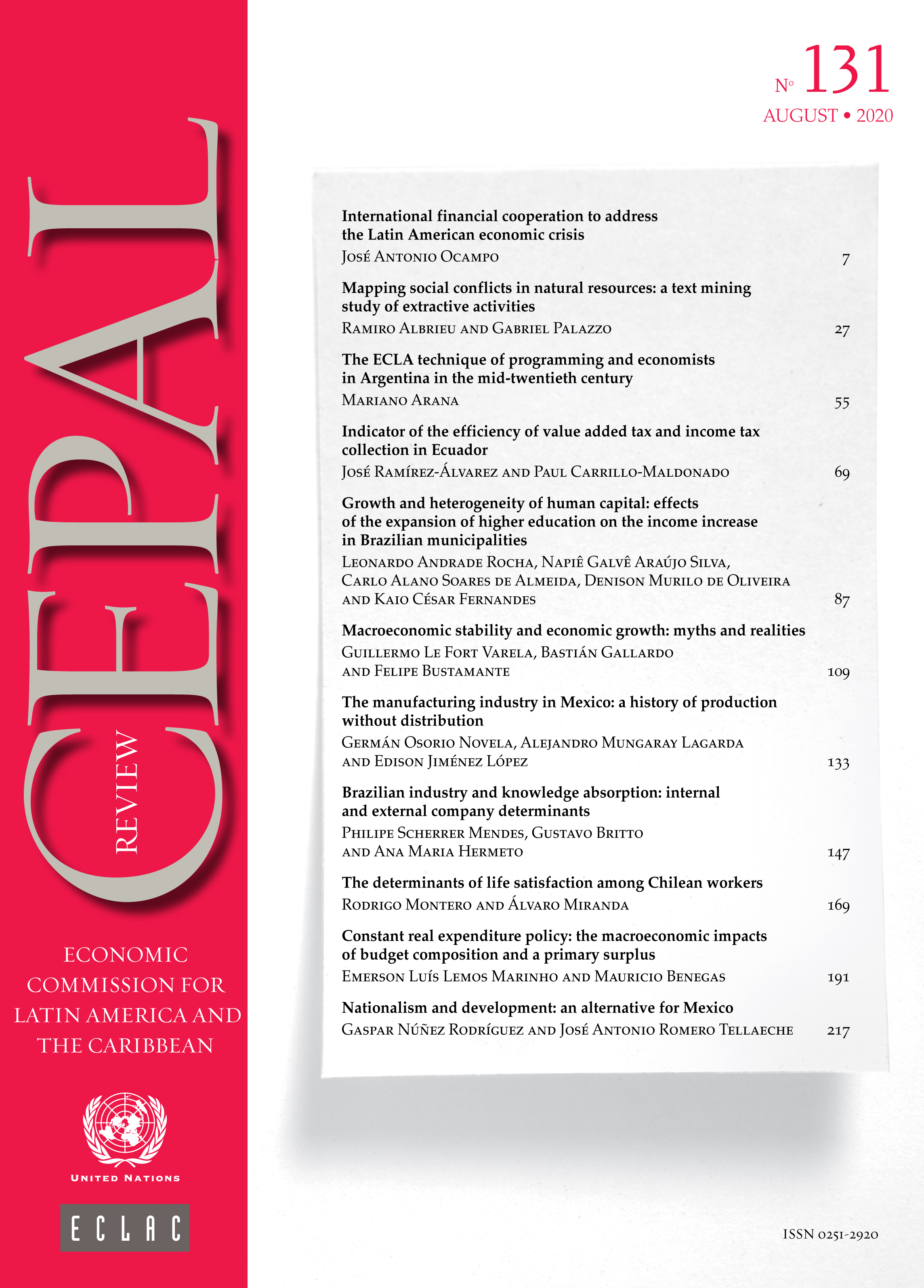-
Constant real expenditure policy: The macroeconomic impacts of budget composition and a primary surplus
- Source: CEPAL Review, Volume 2020, Issue 131, Sep 2020, p. 191 - 215
- Spanish
-
- 28 May 2021
Abstract
This paper analyses the fiscal policy of constant real expenditure recently adopted by Brazil’s fiscal authorities. It also compares the policy of maintaining a primary surplus as a proportion of gross domestic product with that of changing the composition of spending in favour of investment in order to identify which of the two policies is more efficient in promoting economic growth. We investigate the effects of these policies on long- and short-term consumption, investment, labour supply and output and the reaction of the term structure of interest rates. We also analyse the relationship between these fiscal policies and welfare. We use a representative agent model of intertemporal utility maximization subject to budget constraint, with perfect foresight and an infinite horizon




